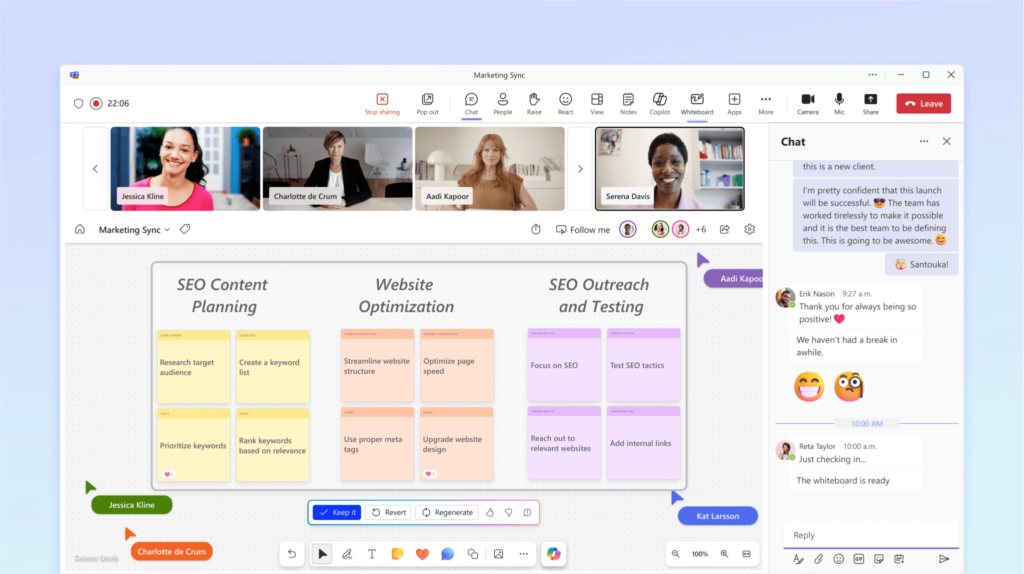
In the world of programming, collaboration is key. Whether you’re working on a solo project or part of a large development team, the ability to effectively communicate and brainstorm ideas is essential for success. Traditionally, this collaboration has often taken place through meetings, emails, and code reviews. However, with the rise of tools like Copilot, collaboration in programming is undergoing a revolutionary transformation.
The Birth of Copilot
Copilot, developed by GitHub in collaboration with OpenAI, is an AI-powered code completion tool that works seamlessly within your Integrated Development Environment (IDE). Launched in 2021, Copilot is built on OpenAI’s GPT models and trained on a vast corpus of code from GitHub repositories. It’s designed to assist developers by generating code suggestions in real-time as they write, helping to increase productivity and reduce repetitive tasks.
Breaking Down the Whiteboard Barrier
One of the most intriguing aspects of Copilot is its integration with the whiteboard. Traditionally, whiteboards have been a staple tool for brainstorming and planning sessions among developers. However, the transition from the whiteboard to actual code implementation often involves a gap in communication. This is where Copilot steps in to bridge that divide.
Imagine a scenario where a team of developers is gathered around a whiteboard, sketching out the architecture and logic of a new feature. With Copilot integrated into their IDEs, they can now instantly translate those whiteboard sketches into actual code. As they discuss and refine their ideas, Copilot generates code suggestions in real-time, allowing them to quickly iterate and experiment without the need to manually write every line of code.
Enhancing Collaboration and Creativity
Copilot’s integration with the whiteboard not only streamlines the coding process but also enhances collaboration and creativity among developers. By providing intelligent code suggestions based on the context of the discussion, Copilot encourages developers to explore new ideas and approaches, leading to more innovative solutions.
Moreover, Copilot’s ability to understand natural language enables developers to communicate with the AI in a more intuitive manner. Instead of thinking in terms of syntax and specific programming languages, developers can simply describe their intentions in plain English, and Copilot will generate the corresponding code. This natural language interface makes it easier for developers of all skill levels to contribute to the coding process, fostering a more inclusive and collaborative environment.
Challenges and Considerations
While Copilot holds immense potential for revolutionizing collaboration in programming, it’s not without its challenges and considerations. One of the primary concerns is the risk of reliance on AI-generated code without fully understanding its implications. Developers must remain vigilant and critically evaluate the code suggestions provided by Copilot to ensure they align with best practices and security standards.
Additionally, there may be situations where Copilot struggles to accurately interpret the intentions of the developers, leading to suboptimal code suggestions. In such cases, it’s important for developers to provide clear and concise input to guide Copilot in the right direction.
Conclusion
Copilot in the whiteboard represents a paradigm shift in how developers collaborate and innovate in the world of programming. By seamlessly integrating AI-powered code completion into the brainstorming and planning stages, Copilot enables teams to translate their ideas into code more efficiently and effectively than ever before.
As the capabilities of AI continue to evolve, we can expect Copilot and similar tools to play an increasingly prominent role in shaping the future of software development. However, it’s important to approach these advancements with caution and mindfulness, ensuring that human creativity and expertise remain at the forefront of the coding process.
In the end, Copilot isn’t just a tool for generating code—it’s a catalyst for collaboration, creativity, and ultimately, the advancement of technology.